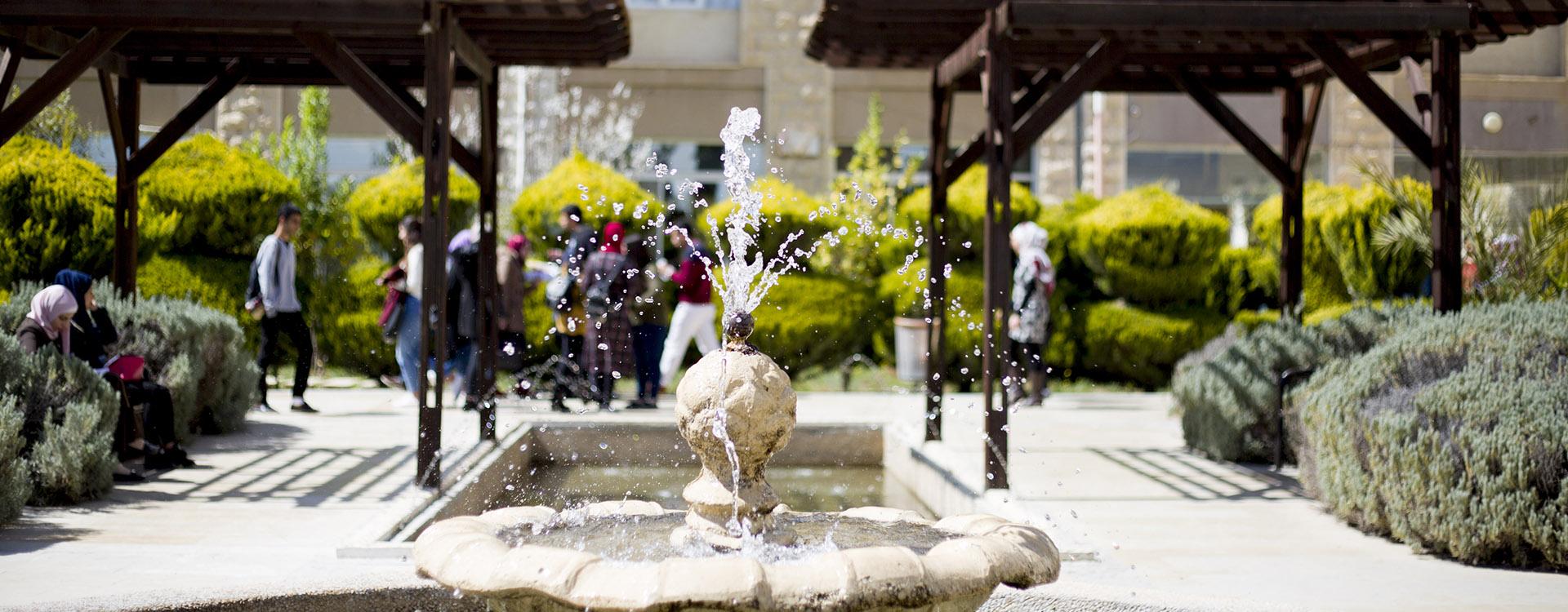Centers & Museums
Expanding Potentials
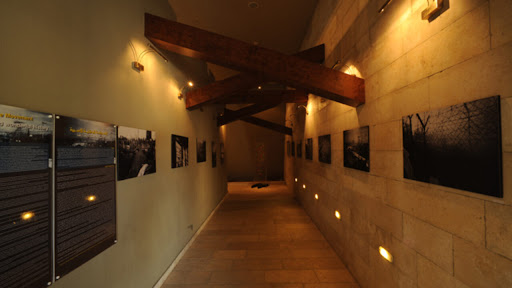
Abu Jihad Museum
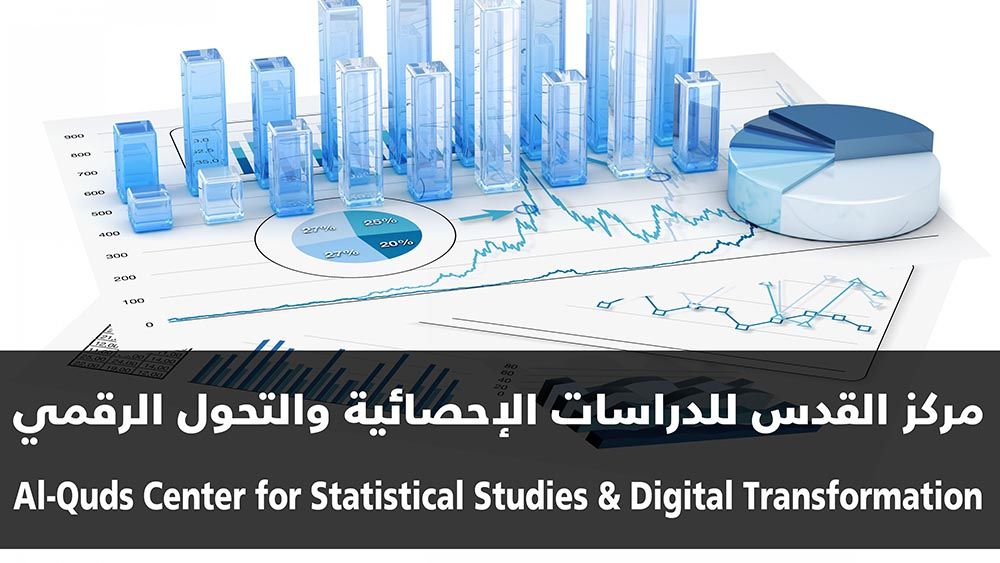
Al-Quds Center for Statistical Studies and Digital Transformation
Statistics and electronic systems are among the most important basic components of development and development, and play a major and effective role in decision-making, setting policies and programs, and organizing the workflow of all departments and academic and administrative units by providing reliable statistical information and modern and accurate numbers, and coordinating harmony and information integration among all corners of the university through Improving and improving electronic systems and providing technical and technical support for all university systems. From this standpoint, we seek to be the reliable source of information, evidence, accurate statistical reports and updated systems, in addition to the main pillar that plays a pivotal role in advancing the development process and actively contributing to the service of decision makers and policy makers in accordance with modern systems and quality standards followed at the university .
Proceeding from the university’s vision of “leadership in teaching and learning, community service, and active participation in building a society of science and knowledge . It was proposed The president of the university establishes a statistics center or something similar to a " statistical analysis center " and is directly linked to the university president's office and the quality assurance unit.
Tasks of the Statistics Center:
- Monitoring the quality, accuracy, and validity of the statistical analysis of academic studies (PhD and MA theses and graduation projects) within the university and giving approval for them.
- Carrying out the necessary statistical analyzes for students (PhD, MA and BA) as well as researchers inside and outside the university.This service is not provided for free as it requires strenuous efforts that may extend to weeks or months of continuous work, supervision and follow-up . Therefore, a sum of money must be paid for this work, determined based on the type and volume of work, taking into account especially for Al-Quds University students.
- Organizing and designing forms and forms related to the collection of statistical information and following up on the procedures for completing their filling.
- The statistical center is responsible for issuing a certificate of sobriety of statistical analysis, stamped and signed, to confirm the integrity and accuracy of the analyses .
- Supervising all statistics issued by the university to ensure the validity of the statistical analysis.
- Carrying out studies and statistical consultancy for the university and its centers, as requested by the concerned official authorities.
Statistical analysis methods used in the center:
1. Quantitative Data Analysis: Quantitative data analysis simply means analyzing data based on numbers - or data that can be easily "turned" into numbers without losing any meaning. Quantitative analysis involves measuring data with the help of some form of statistical analysis. Quantitative analysis is generally used for three purposes :
- To measure the differences between groups
- The relationships between the variables
- Hypothesis testing in a rigorous scientific manner .
The programs used in the center to analyze this type of data are: OpenBugs , R (free software), IBM AMOS, Excel, SPSS
2. Qualitative Data Analysis: Qualitative data are descriptive findings and concepts collected through questionnaires, interviews or observation. Analyzing qualitative data allows us to explore ideas and further explain quantitative results. Whereas quantitative data collection retrieves numerical data (what, where and when), qualitative data, often presented as a narrative, collects the stories and experiences of patients , individuals, and families (why, how) . Qualitative analysis is important because the rich details people share is so powerful in thinking through complex systems that it can explain how the implementation of our programs and policies works in real life and ultimately leads to change.
The programs used in the center to analyze this type of data are: HubSpot, Qualtrics, Square Feedback (free software), Connected Text (free software)
3. Meta Analysis: It is a type of quantitative statistical analysis It combines data and results from multiple studies to find common results and to identify general trends.
The programs used in the center to analyze this type of data are: Stata, R (free software), S Plus, MATLAB
Contact us
- Email: statistical.studies@alquds.edu
- Phone: 6096
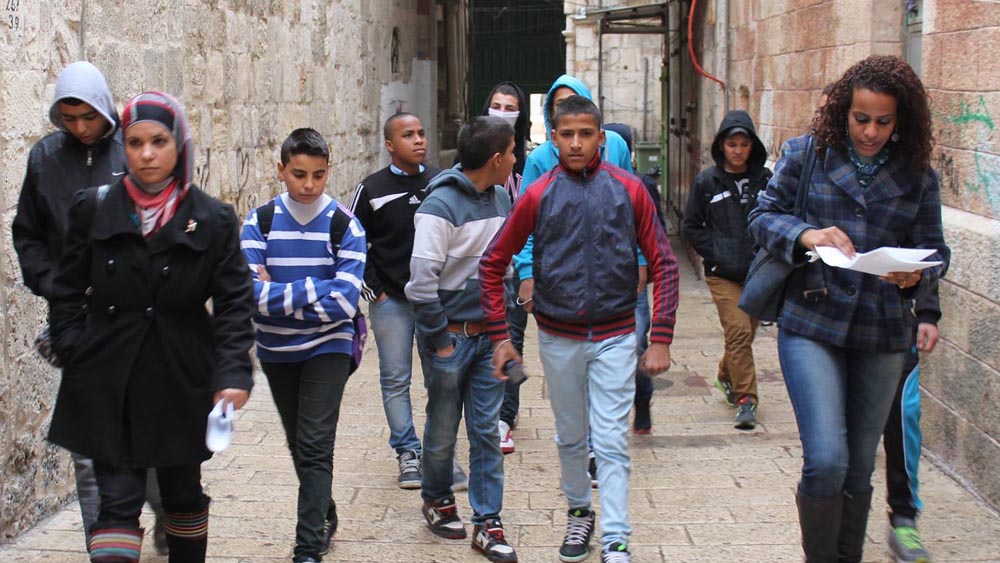
Al-Quds Human Rights Clinic
- Al-Haq – Law in the Service of Man
- Adalah – The Legal Center for Arab Minority Rights in Israel
- Badil Resource Center for Palestinian Residency and Refugee Rights
- Addameer – Prisoners’ Support and Human Rights Association
- Society of St.Yves- Catholic Human Rights Legal Center
- DCI - Defence for Children International-Palestine Section
- Stop the Wall – The Grassroots Palestinian Anti-Apartheid Wall Campaign
- OHCHR - UN Office of the High Commissioner for Human Rights.
- ICRC - The International Committee of the Red Cross.
- ICTJ - International Center for Transitional Justice.
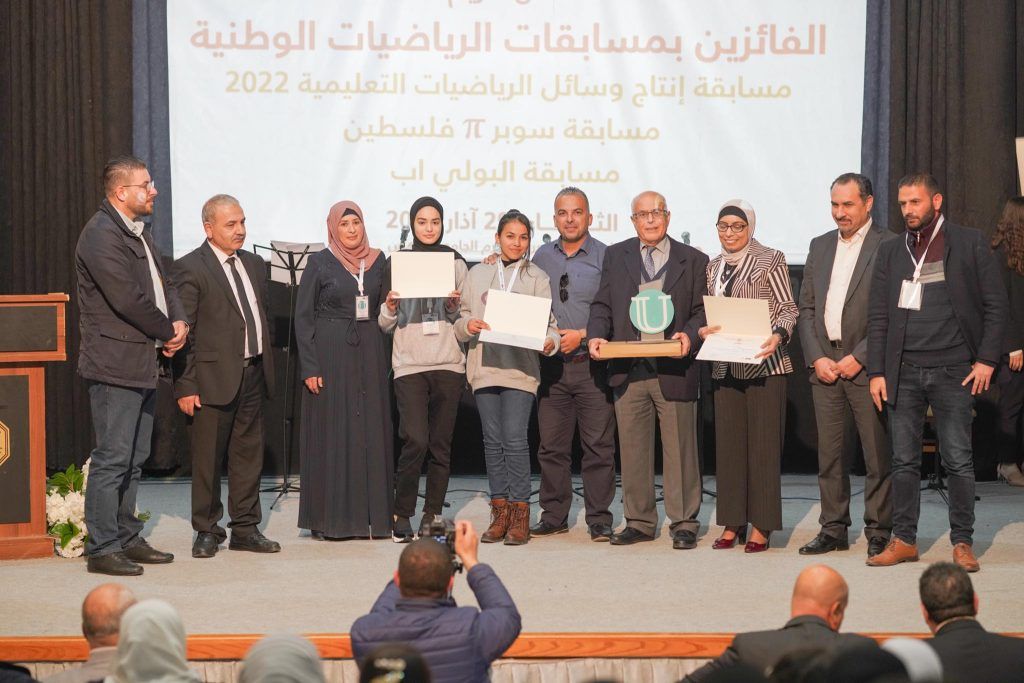
Al-Quds University Inaugurates the 2022 Math Teaching Aids Exhibition and Honors Winners of “Math Teaching Aids Production, Super Pi Palestine, and Poly Up” Competitions
[vc_row][vc_column][vc_column_text]
Al-Quds University President Prof. Imad Abu Kishek, along with a delegation from the Ministry of Education, inaugurated the 2022 Math Teaching Aids Production Exhibition for Palestinian school students. This marks the third consecutive year for the exhibition, which also included announcements of the winners in the exhibition and in the "Super Pi Palestine" and "Poly Up" competitions. These annual national competitions are supervised by the university’s Math Museum.
The competitions aim to highlight students' and math teachers' scientific talents by transforming abstract mathematical theories into interactive tools that enhance educational development. The event was attended by the Assistant Undersecretary for Education, Mr. Ayoub Alian, Dr. Abdeljaber Al-Houdali, Director of Rafah Foundation for Mathematics, Mr. Jawad Abu Aoun, Director of Partners in Development, Fr. Mario Hadchiti, Director of Terra Sancta Schools, along with education directors, school principals, math supervisors, and teachers from various regions.
During a tour of the exhibition, Prof. Abu Kishek emphasized the university's commitment to innovation, excellence, and student capacity-building in partnership with the Ministry of Education. He added, "The establishment of the Math Museum has realized these goals, embodying the university’s vision and supporting creativity based on imagination." Prof. Abu Kishek praised the exhibited teaching aids, which were evaluated by judges from both the university and the ministry, for their successful integration of theory and practice to make math more accessible for students.
Prof. Hassan Dweik highlighted that the Math Museum organizes annual scientific competitions like Super Pi and Poly Up with the Sustainable Development Partners Foundation, as well as the Math Teaching Aids Exhibition, which provides tools that simplify math for students. He commended the efforts of those organizing the exhibition and competitions.
Ayoub Alian emphasized the importance of math in everyday life and the necessity of such exceptional student competitions organized by the museum. He praised the collaborative relationship between the ministry and Al-Quds University, which has led to various activities for different curricula, noting that universities are essential for advancing the educational process.
The Math Museum Director, Mr. Jihad Abu Kabbash, explained that the aim of these competitions is to break the rigidity surrounding the math curriculum, establishing productive strengths in math education through interactive tools that make understanding math easier for students. These competitions also allow teachers and their students to create products that serve as foundations for broader, more comprehensive projects in the future.
The ceremony included a video presentation showcasing the competition stages, objectives, and future vision of the Math Museum, along with artistic performances and a musical segment by the university band. Prof. Hassan Dweik and Mr. Alian honored the judging panels from Al-Quds University and the Ministry of Education, followed by the awarding of Super Pi Palestine winners. Among the winners were Nidal Khaled Hasan Tarayreh from Bani Naim Primary School in Hebron, the youngest Palestinian contestant of 2022, and Yara Abd Al-Rahman Mahfouz from Al-Aroub Secondary Girls’ School in Hebron, who memorized 20,316 digits of Pi to claim the 2022 Super Pi Palestine title. Other winners included Raghad Mohammed Jaouni from Terra Sancta Secondary School in Jericho and Sundus Hani Shuqeir from Al-Zawiya Primary Girls’ School in Salfit.
In the Poly Up competition, the first place went to the "Water Problem in Palestine" project team from Broqin Girls’ Secondary School in Salfit, guided by teachers Tahani Khaled and Najah Ayyoub. The second place was awarded to the "Fuel Alternative" project team from Beita Girls’ Secondary School in South Nablus, and third place went to the "Environmental Deterioration in Palestine" project team from Husni Al-Ashhab Boys’ School near Jerusalem.
The winners of the 2022 Math Teaching Aids Production competition were also honored, with the first place awarded to Nablus Directorate, South Girls’ Secondary School in Awarta, for the "Nested Cube Sequence" teaching aid. Second place went to Amateen Girls’ Secondary School in Qalqilya for their "Learning Algebra through Play" project, and third place was awarded to Dr. Hafez Abd Al-Nabi Al-Natsheh School in Hebron for the "Volume of the Square Pyramid" project.
The Bethlehem Directorate won awards for Best Design and Best Presentation, with Ms. Heba Allah Al-Abed and students from Al-Abyat Girls’ School receiving the Best Design award for their project on matrices, and Ms. Aziza Khair Bardoubel and her students from Al-Freir School winning Best Presentation for their project on calculating shaded areas in circles under specific conditions.
All financial awards were sponsored by Birzeit Pharmaceutical Company, while material prizes were provided by the Partners in Sustainable Development Foundation.
The Math Museum organizes numerous annual educational activities and competitions for students across all age groups and regions, drawing thousands of students each year who enjoy engaging, fun experiences with mathematics. Notably, the Super Pi Palestine competition, in which participants memorize the highest possible digits of the irrational number Pi (π), is unique in the region and the first of its kind in the Arab world, aiming to identify extraordinary mental abilities among Palestinian students nationwide.
[/vc_column_text][/vc_column][/vc_row]
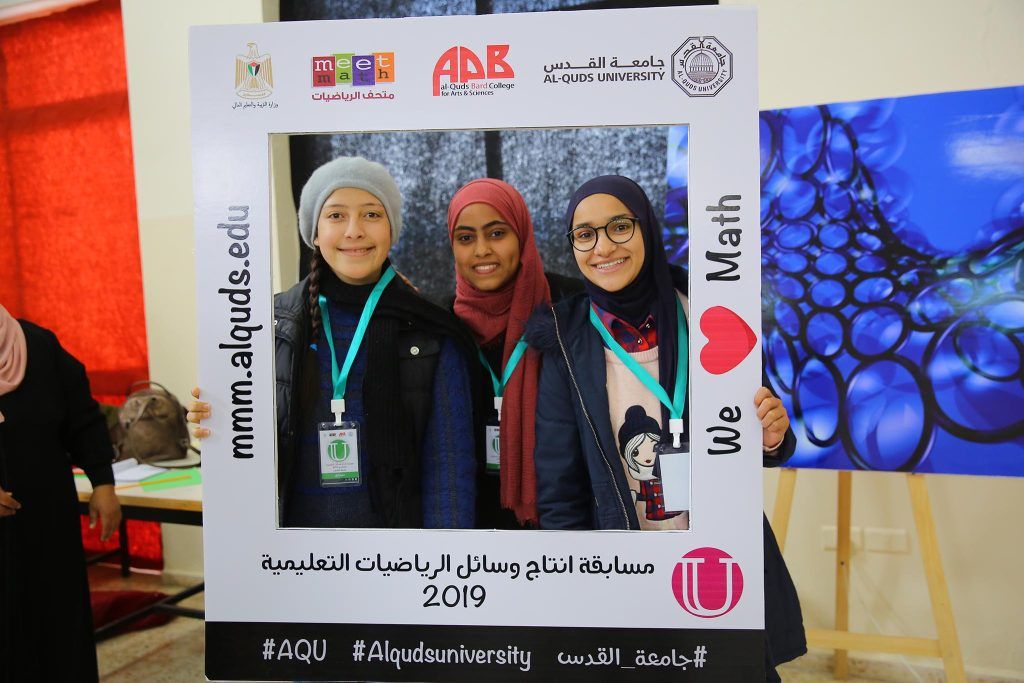
Al-Quds University Launches 2020 Math Competitions in Collaboration with the Ministry of Education and Partners in Sustainable Development
[vc_row][vc_column][vc_column_text]
Al-Quds University, in partnership with the Ministry of Education and the Partners in Sustainable Development Foundation, has launched the 2020 Math Competitions, prepared by the university's Math Museum. The competitions include the Educational Math Teaching Aids Production Competition, the Poly-Up Competition for machine-building connected to computational mathematics, and the Super Pi Palestine Competition. Students and their teachers from grades 9-12 across various Palestinian regions are invited to participate.
Jihad Abu Al-Kabash, head of the Math Museum, highlighted that the competition targets creative students and their teachers in various fields of mathematics, such as geometry, topology, algebra, number theory, arithmetic, calculus, and applied mathematics, among others, with the goal of producing innovative teaching aids to clarify theoretical concepts in mathematics.
He noted that this year marks the second consecutive Educational Math Teaching Aids Production Competition following last year’s success. Additionally, this will be the eleventh year of the Super Pi competition organized by the museum, alongside the first-ever Poly-Up competition. Abu Al-Kabash expressed his hope for the success of all competitions and their future development in collaboration with the Ministry of Education and all partners to benefit school students, their teachers, and the university.
Al-Quds University, known for its commitment to development, community service, and educational advancement, has organized numerous impactful activities with the Ministry of Education. The university emphasizes the importance of partnerships with community institutions, focusing on stimulating interest in STEM fields, the humanities, and other areas. Official celebrations for these competitions will be held on Saturday, March 14, 2020, coinciding with International Day of Mathematics. Events from around the world will be broadcast live through the International Mathematical Union (IMU) platforms, of which the Math Museum at Al-Quds University is an active member.
[/vc_column_text][/vc_column][/vc_row][vc_row][vc_column][vc_gallery interval="3" images="50536,50537,50538,50539,50540,50541,50542,50543" img_size="full"][/vc_column][/vc_row]
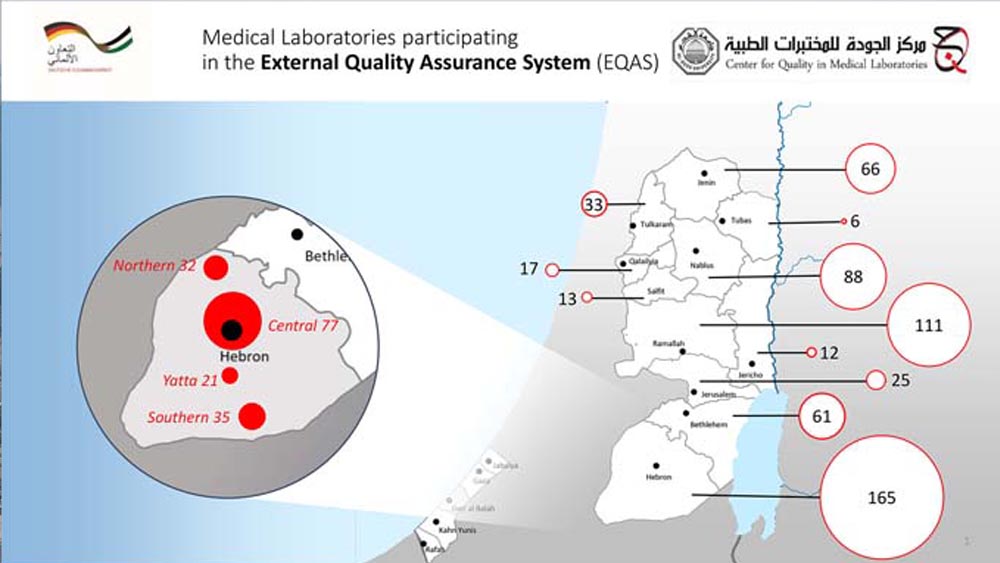
Center for Quality in Medical Laboratories
- External Quality Control Program, which is the only national program of its kind in Palestine. The program provides services to the medical laboratories of the major health institutions in the West Bank. At the present stage, the program works to expand its services to involve private laboratories.
- Continuing Education Program: The program works with the quality control program to solve the problems of laboratories through the provision of specialized training courses to meet local needs with focus on the area of quality control.

Chemical & Biological Analysis
- Demand driven applied research: The Center conducts applied research in the fields of environment, agriculture, industry, and supports the research activities of staff members at different department at the university.
- Human resource development: This is achieved by providing the technical training through workshops in the fields of water, soil, agriculture, and industry. Staff members of the center and the university offer the training courses and workshops. The target groups are the Palestinians working in the above fields.
- Community services: The Center provides the community with services in the area of chemical and biological analyses.
- Dr. Mustafa Khamis, Proffesor in Chemistry, Department of Chemistry, College of Science and Technology, Al- Quds University
- Dr. Ibrahim Afaneh, Assistant Proffesor in Food Technology, Department of Food Technology, College of Science and Technology, Al- Quds University
- Dr. Mutaz Qotob, Associate Professor in Marine Biology, Department of Environment and Earth Sciences, College of Science and Technology, Al- Quds University
- Dr. Jawad Hasan, Assistant Professor in Hydrochemistry, Department of Environment and Earth Sciences, College of Science and Technology, Al- Quds University
- Dr. Saleh Abu Lafi, Associate Professor in Analytical Chemistry, Faculty of Pharmacy, Al- Quds University
- Dr. Imad Odeh, Associate Professor in Organic Chemistry, Department of Chemistry, College of Science and Technology, Al- Quds University
- Dr. Rafiq Karaman, Professor in Pharmaceutical Chemistry, Faculty of Pharmacy, Al- Quds University
- Dr. Jehad Abbadi, Assistant Proffesor of Biology: Acting Director
- Mr. Muhannad Qurie, M.Sc. Applied Industrial Technology: Lab Technician (cv)
- Mr. Sameh Nussiebeh, M.Sc. Environmental Sciences: Lab Technician
- Miss Rinad Zghari: M.Sc. Student in Environmental Sciences, funded by MERC project, under supervision of Dr. Jehad Abbadi and Dr. Mustafa Khamis
- Miss Fatima Ayyash: M.Sc. Student in Applied Industrial Technology, funded by MERC project, under supervision of Dr. Rafiq Karaman, Dr. Omar Deeb and Dr. Mustafa Khamis
- Mr. Majdi Shaheen: M. Sc. Student in Environmental Science, funded by Austrian Development Agency in cooperation with the Palestinian Water Authority, under supervision of Mutaz Qutob, and Mustafa Khamis
- Miss Fida' : M.Sc. Student in Applied Industrial Technology, funded by DFG project, under supervision of Dr. Saleh Abu Lafi and Dr. Mutaz Qutob
- Miss Tasneem Al-Ja'bari: M.Sc. Student in Environmental Sciences, funded by Austrian Development Agency in cooperation with the Palestinian Water Authority, under supervision of Dr. Jawad Hasan
- Mr. Ibrahim Ayyad: M.Sc. Student in Environmental Sciences, funded by Austrian Development Agency in cooperation with the Palestinian Water Authority. under supervision of Dr. Jawad Hasan
- To determine the efficiency of hollow-fiber and spiral wound in terms of removing bacteria from waste water.
- To screen a wide range of bacterial species present in wastewater that has certain health significance, and checking their presence in the inlet wastewater and monitoring the efficiency of their removal using our treatment system. The microbes under investigation are: Escherichia coli, Enterococci bacteria, Shigella, Salmonella, in addition to Total coliform bacteria, Fecal coliform bacteria, and Total plate count.
- To perform modeling experiment for bacteria having health significance or found in low count in the inlet wastewater under investigation such as E.scherichia coli, Enterococci, Salmonella, and Shigella as microbial models to be inoculated in a certain count (105 -107 cfu/ml) influent then passed through AST-UF filters (hollow fiber) and Nirosoft- UF (spiral wound) and RO filters and record their rejection efficiency.
- Adsorption and Determination of Cr (VI) & Cr (III) in industrial wastewater using ICP-AES by Muhammad Musa Mere'b, supervised by Dr. Mustafa khamis, Dr. Adnan Rashid and Majdi Dakiky, Al-Quds Unversity, 2000.
- Analytical study of hazard elements, air pollutants in the area of Bethlehem and Hebron by Suhail M. Odeh, supervised by Dr. Rushdi Kitaneh, and Dr. M. Abu-Taha, Al-Quds University, 2001.
- Effect of nitrogen forms on tomato growth and fruit quality and improving nitrogen fixation to increase yield of chickpea and fava bean. By Jehad Muhammad Abbadi, supervised by Dr. Mustafa khamis, Dr. Adnan Rashid, and Dr. Magdi El- Dakiki, Al-Quds University, 2002.
- The response of chickpea (Cicer atietinum L) to irrigation with reclaimed waste water, by Mohhanad Saleem Quarei, supervised by Dr. Mustafa khamis, Dr. Adnan Rashid and Dr. Majdi El-Dakiky, Al-Quds University, 2002.
- Speciaition and removal of Cr (III) and Cr (VI) by continues flow method using low cost adsorbents, by Talib Mosa Ahmad Ihmied, supervised by Dr. Mustafa khamis, Dr. Adnan Rashid and Dr. Majdi El-Dakiky, Al-Quds University, 2006
- Analysis of volatiles in Palestinian honey by HS-SPME/GCMS to determine its botanical origin, by Ibrahim Hasan Ibrahim AL-Najjar, supervised by Dr. Imad Odeh, Dr.Saleh Abu-Lafi and Dr. Hasan Dweik, Al-Quds University, Dec 2004.
- Isolation and identification of the essential oils of the Palestinian Thyme (Majorrana Syriaca L.) using Head Space GC/MS, by Mohhamad Mahmoud Qabaja, supervised by Dr. Dr. Imad Odeh, Dr. Saleh Abu-Lafi and Dr. Hasan Dweik, Al-Quds University, Jan 2004.
- Effect of Treated Effluents on the persistence of Atrazine in clay loam soil cropped with Zea mays, by Jawad Ali Hasan, supervised by Dr. Jaber Masalha and Cluade Al-A'ma, Al-Quds University, April 2005.
- Waste water treatment and reuse in agriculture, by Mustafa Khamis, Jehad Abbadi, and Mohhand Quire, funded by the Belgian Government
- Waste water reuse in irrigation of olives, by Hasan Dweik, and Saleh sawalha Belgium Project, funded by the Belgian Government
- Effect of inoculation of Azospirillium brasiliense strain Cd on improving growth and yield of chick pea and fava beans, by Adnan Rashid, and Jehad Abbadi, funded by the Belgian Government
- Effect of salinity on tomato production, by Adnan Rashid, and Jawad Hasan, funded by the Belgian Government. Biological control using of plant diseases, by Khaled Salem , Jawad Hasan
- Effect of nitrogen Forms and salinity on quality of tomato fruits, by Mustafa Khamis and Jehad Abbadi, funded by DFG
- Bianca Hamaoui, Jihad M. Abbadi, Saul Burdman, Adnan Rashid, Shlomo Sarig and Yaacov Okon, (2001): Effects of inoculation with Azospirillum brasilense on chickpeas (Cicer arietinum) and faba beans (Vicia faba) under different growth conditions, Agronomie 21, 553-560.
- M. Khamis, J. Abbadi, B. Sattelmacher, J. Gerendás and U. Kafkafi (2002) Influence of N form (NO3- vs. NH4+) and salinity on tomato yield and fruit composition, In Horst, W. J. et al., (Eds.) Plant Nutrition, Food security and sustainability of agro-ecosystems through basic and applied research, Kluwer Academic Publisher, Dordrecht; The Netherlands, Vol. 92, pp 306-307.
- M. Haddad, M. Khamis, M. Dakiky, M. Qurie (2006): The response of chickpea cultivars to irrigation with treated wastewater. In the proceedings of the World Water Day, Amman, Jordan.
- M. Haddad, M. Khamis, M. Dakiky, A. Manassra, M. Qurie (2007): Characterization and Optimization of the Advanced Membrane Wasewater Treatment Pilot Plant at Al-Quds University, In the proceedings of the World Water Day, Rammalah, Palestine.
- Jehad Abbadi, J. Gerendás, and B. Sattelmacher (2005): Effects of N, P and K Supply on Growth and Yield of Safflower (Carthamus tinctorius L.) Compared to Sunflower (Helianthus annuus L.) under Greenhouse Conditions. In Esendal, E. et al., (Ed.): VIth International Safflower Conference, 6-10 June, Istanbul-Turkey, pp 335-343.
- Jehad Abbadi (2007) Importance of nutrient supply (N,P,K) for yield formation and nutrient use efficiency of safflower (Carthamus tinctorius L.) compared to sunflower (Helianthus annuus L.) including an assessment to grow safflower under north German conditions. Verlag Grauer. Beuren. Stuttgart.
- Jehad Abbadi, Jóska Gerendás, and Burkhard Sattelmacher (2008): Effects of Nitrogen Supply on Growth, Yield and Yield Components of Safflower and Sunflower, Plant and Soil, 306, pp: 167-180.
- Jehad Abbadi, Jóska Gerendás, and Burkhard Sattelmacher (2008): Effects of Potassium Supply on Growth and Yield of Safflower as compared to Sunflower, Journal of Plant Nutrition and Soil Science, 171, 272-280.
- Jóska Gerendás, Jehad Abbadi, and Burkhard Sattelmacher (2008): Potassium Efficiency of Safflower (Carthamus tinctorius L.) and Sunflower (Helianthus annuus L.) Journal of Plant Nutrition and Soil Science, 171, 1-9.
- Jehad Abbadi and Jóska Gerendás (2009): Nitrogen Use Efficiency of Safflower as compared to Sunflower. Journal of Plant Nutrition 32:6, 929 - 945.
- Jehad Abbadi and Jóska Gerendás (2009): Effects of Phosphorous Supply on Growth and Yield of Safflower as compared to Sunflower, Journal of Plant Nutrition ID: LPLA-2009-0088.R1 (under revision).
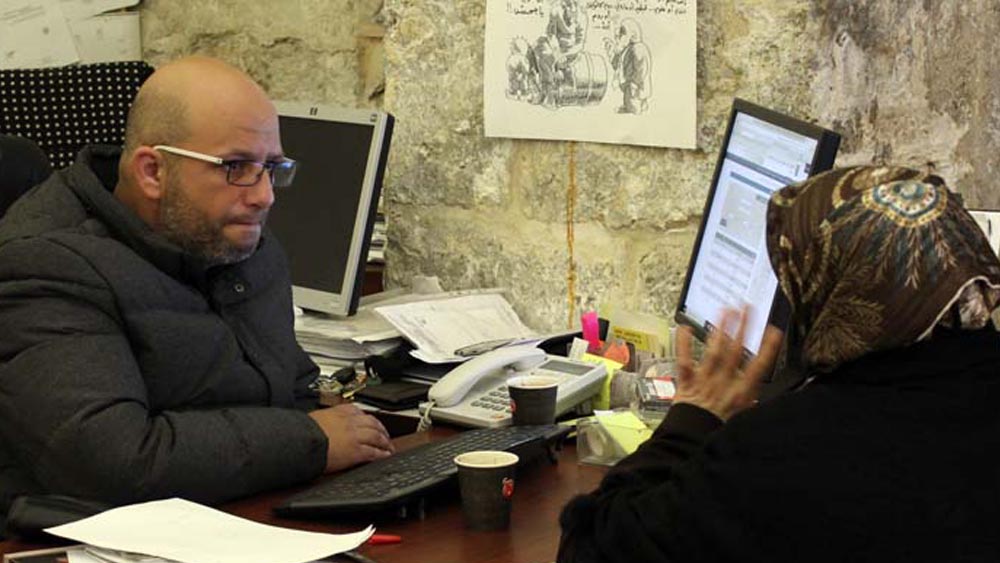
Community Action Center
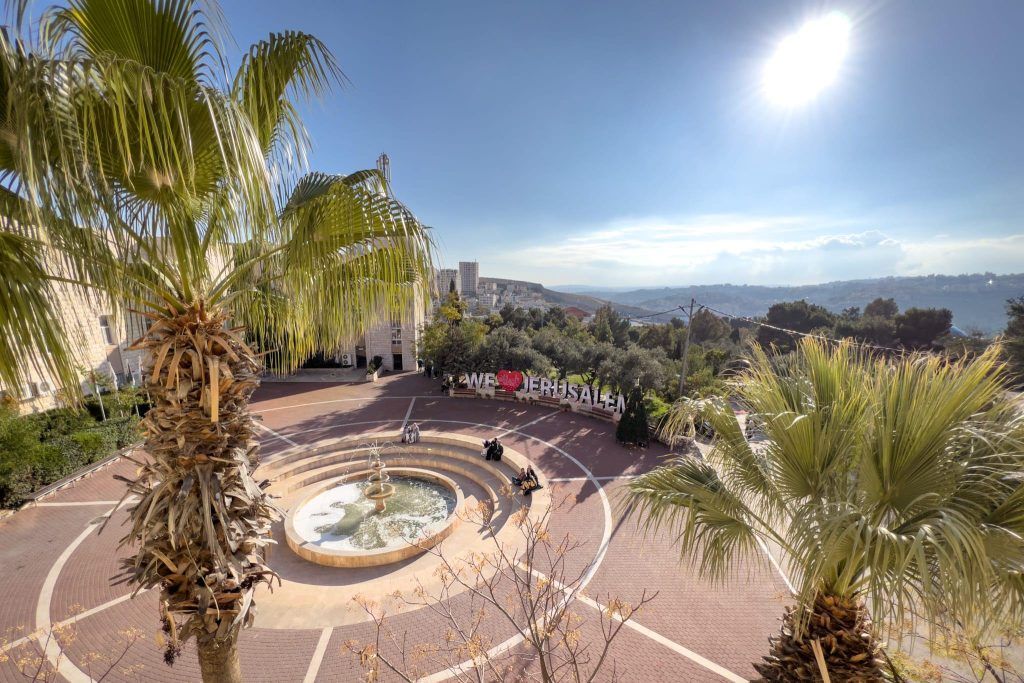
Congratulations and Workshop Announcement for Teachers Advancing in the National Math Teaching Aids Production Competition at Al-Quds University
[vc_row][vc_column][vc_column_text]
Al-Quds University and the Palestinian Ministry of Education extend their warmest congratulations to the teachers who have successfully passed the first stage of the National Math Teaching Aids Production Competition, organized by the university under the supervision of the Math Museum.
The university announces a workshop for the qualified teachers, scheduled for Saturday, January 15, 2022, at 10:00 AM on the main campus in Abu Dis. The purpose of this workshop is to support teachers in developing and finalizing their projects for the final exhibition, which will be held at Al-Quds University in March 2022.
In the first stage of the competition, over 800 applications were submitted from across Palestine for math teaching aid production, and 34 teams have advanced to the next round.
The Math Museum at Al-Quds University launched the national math competitions in partnership with the Ministry of Education in October 2021. The competitions aim to foster a spirit of competition and open new horizons for teaching math through innovative and engaging methods, promoting collaboration and creativity among teachers and students in production, cognitive thinking, and design.
To view the list of teams advancing to the implementation phase of the 2022 Math Teaching Aids Production Competition, click here.
[/vc_column_text][/vc_column][/vc_row]
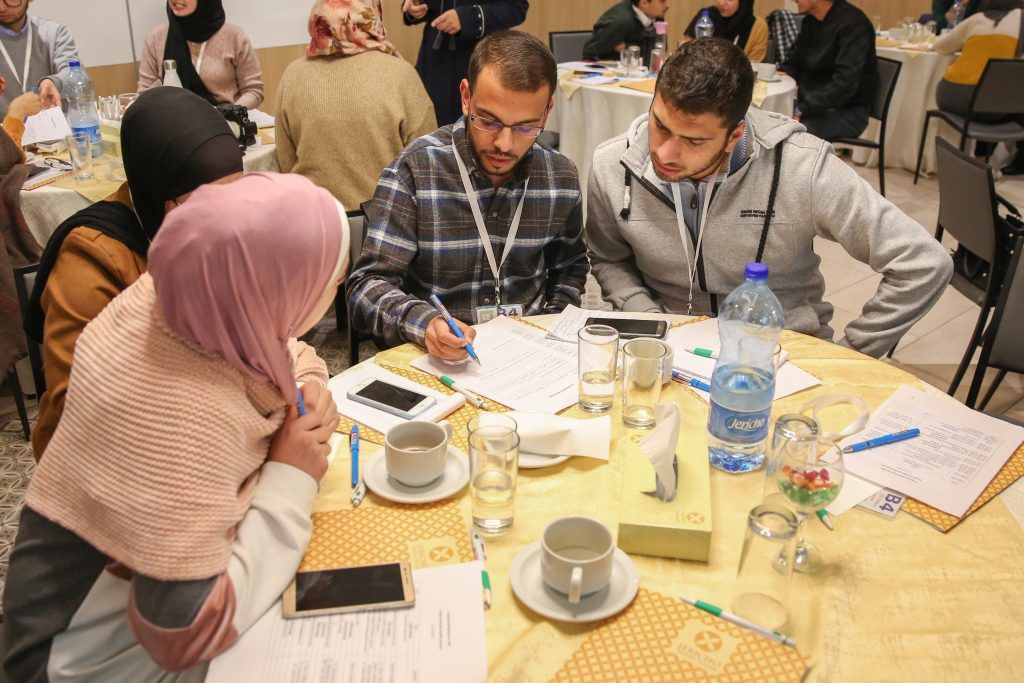
Empowering Education: A Deep Dive into the Teaching and Learning Development Center at Al-Quds University
[vc_row][vc_column][vc_column_text]
The Teaching and Learning Development Center (TLDC) at Al-Quds University plays a crucial role in fostering a professional environment that promotes academic growth for both staff and students. By providing a range of services, consultations, workshops, and programs, the TLDC equips individuals with the knowledge, skills, and strategies necessary to become confident, independent, and active teachers and learners. In this article, we will explore the TLDC's vision, mission, tasks and objectives, and the specific services it offers to faculty members and students.
About:
Established to address the ever-evolving landscape of higher education, the TLDC at Al-Quds University serves as a vital resource for academic development. By focusing on the needs of both faculty members and students, the center aims to create a supportive learning environment that enhances the overall educational experience at the university.
Vision:
The TLDC envisions a future where all faculty members and students at Al-Quds University can reach their full potential as educators and learners. By offering cutting-edge resources and support, the center aims to cultivate an environment that fosters innovation, creativity, and academic excellence.
Mission:
The mission of the TLDC is to empower both staff and students by providing them with the necessary tools and guidance to develop the knowledge, skills, and strategies required for success in their respective roles. The center is committed to supporting academic growth, promoting effective teaching and learning practices, and nurturing a culture of continuous improvement within the Al-Quds University community.
Tasks and Objectives:
The TLDC focuses on several key tasks and objectives, including:
- Enhancing the quality of teaching and learning at Al-Quds University by providing targeted support and resources for faculty members and students.
- Offering professional development opportunities to faculty members, such as workshops and training sessions, to help them stay current with best practices in teaching and learning.
- Fostering a collaborative learning environment by encouraging the exchange of ideas, knowledge, and expertise among faculty members and students.
- Identifying and addressing barriers to student success, including academic challenges and learning differences.
- Evaluating the effectiveness of the center's services and programs, and making data-driven improvements to better support the university community.
Services provided to faculty members:
The TLDC offers a range of services tailored to the specific needs of faculty members, including:
- Individual consultations: Faculty members can meet with TLDC staff to discuss their teaching practices, explore new pedagogical approaches, and receive personalized guidance on enhancing their instructional skills.
- Workshops and training sessions: The center regularly hosts workshops and training sessions on topics such as course design, assessment strategies, and innovative teaching techniques.
- Peer mentoring and support: Faculty members can connect with colleagues who have expertise in their respective fields, fostering a sense of camaraderie and collaboration among educators.
Services provided to students:
To support student success, the TLDC offers the following services:
- Academic skills development: Students can access resources and attend workshops on study strategies, time management, test-taking techniques, and more.
- Tutoring services: The center provides peer tutoring in various subjects, helping students to develop a deeper understanding of course material and improve their academic performance.
- Learning accommodations: The TLDC works with students who have learning differences or disabilities to ensure they receive the necessary support and accommodations to succeed in their studies.
The Teaching and Learning Development Center at Al-Quds University is dedicated to promoting academic excellence by providing comprehensive support and resources for both staff and students. Through its vision, mission, tasks, and objectives, the TLDC fosters a professional environment that empowers individuals to become confident, independent, and active teachers and learners. With its range of services tailored to the specific needs of faculty members and students, the center plays a pivotal role in creating a culture of continuous improvement and academic success within the Al-Quds University community. By nurturing innovation, creativity, and collaboration, the TLDC ensures that all members of the university can reach their full potential and contribute to the advancement of knowledge and education.
[/vc_column_text][/vc_column][/vc_row]

Jerusalem Studies

Medical Laboratory Sciences
- External Quality Control Program, which is the only national program of its kind in Palestine. The program provides services to the medical laboratories of the major health institutions in the West Bank. At the present stage, the program works to expand its services to involve private laboratories.
- Continuing Education Program: The program works with the quality control program to solve the problems of laboratories through the provision of specialized training courses to meet local needs with focus on the area of quality control.
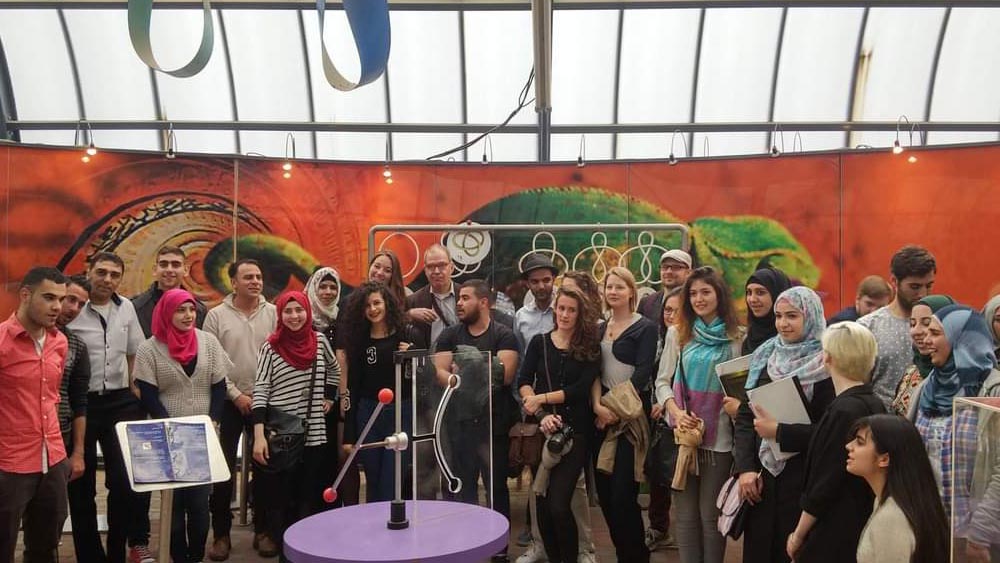
Meet Math Museum
- Nnumbers, pattern and structure, shape, computing. , great mathematicians, activities area
- Math for grades 5& 6 exhibitions
- Facebook: http://www.facebook.com/meetmath
- Instagram: math_museum
- : https://mmm.alquds.edu/ar/
- Competitions Website: https://mec.alquds.edu/ar/
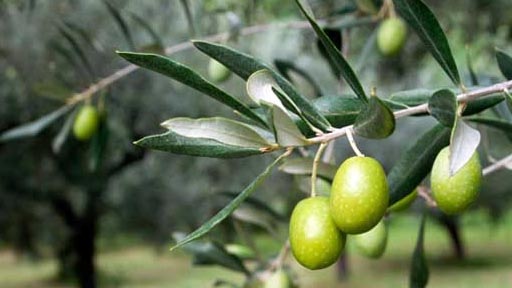
Nutrition and Health Research
A LEADING RESEARCH INSTITUTE IN PALESTINE
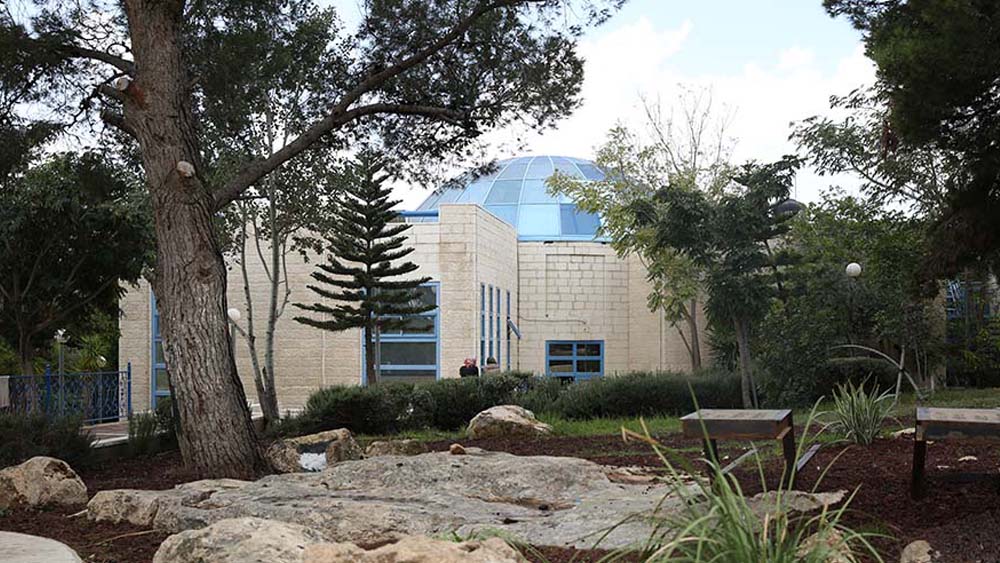
Said Khoury Information Technology Center
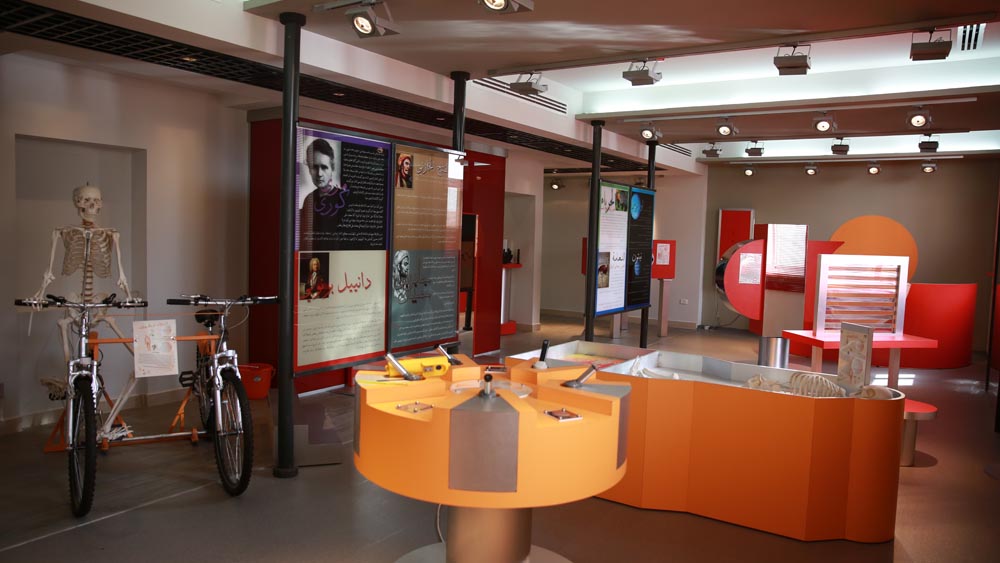
Science Museum
- The waves
- Audio section
- Human body systems
- Mirrors and light section
- Electricity and magnetism


